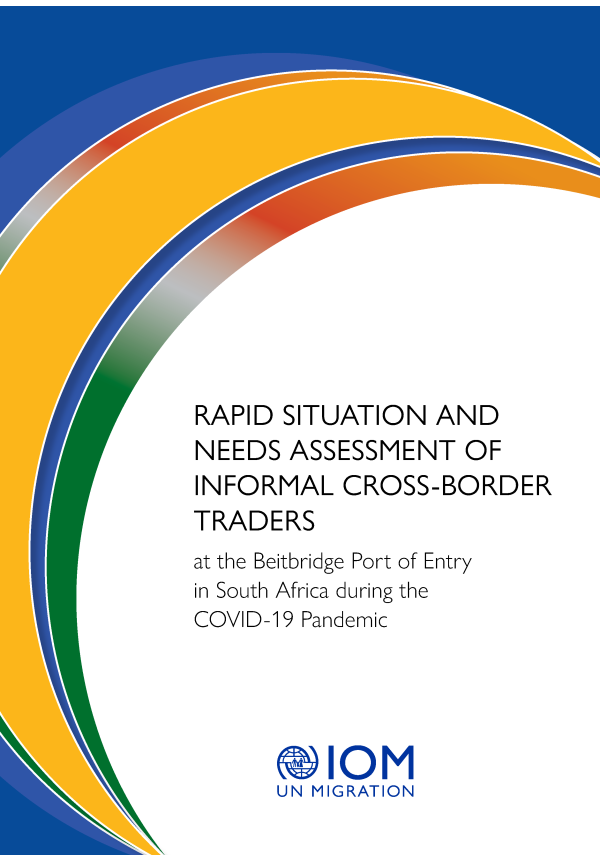Rapid Situation and Needs Assessment of Informal Cross-border Traders at the Beitbridge Port of Entry in South Africa during the COVID-19 Pandemic

Rapid Situation and Needs Assessment of Informal Cross-border Traders at the Beitbridge Port of Entry in South Africa during the COVID-19 Pandemic
Informal cross-border trade (ICBT) is significant in Southern Africa, accounting for between 30 per cent and 40 per cent of the total trade within the SADC, with an estimated value of USD 17.6 billion. Women make up approximately 70 per cent of informal traders. They face gender-specific risks and are more susceptible to harassment, abuse and exploitation. The majority of female informal cross-border traders are relatively poor, with low levels of education yet they support some of the most fragile and impoverished communities. Accordingly, any threat to ICBT poses a threat to the most vulnerable and the least resilient. The outbreak of COVID-19 has led to significant challenges regarding the continuation of ICBT as a result of the measures put in place to contain the spread of the pandemic, including border closures and travel restrictions. These changes have had a catastrophic impact on the livelihoods of informal cross-border traders, as they are unable to conduct their routine trade. COVID-19 restrictions have hit informal trade harder than other sectors, with women being hit particularly hard by economic losses. A rapid needs and baseline assessment was undertaken in four countries, namely Malawi, South Africa, Zambia and Zimbabwe, in order to understand the impact of COVID-19 on ICBT. This report gives the findings and recommendations from the assessment done in South Africa. The assessment was conducted within the framework of a project supported by the Government of the United Kingdom’s Foreign, Commonwealth and Development Office.
Read More
- List of figures
- List of tables
- List of abbreviations and acronyms
- Executive summary
- 1. Introduction
- 1.1. Project background
- 1.2. Objectives of the assessment
- 1.3. Scope of the assessment
- 2. Methodology, assumptions and limitations
- 2.1. Assessment methodology
- 2.2. Assessment assumptions
- 2.3. Limitations of the assessment
- 3. Beitbridge port of entry
- 3.1. Description and location
- 3.2. Demographics and main economic activities at the border
- 3.3. Trade and migration at the border
- 3.4. Cross-border traders associations and other informal cross-border trade support agencies/organizations at the border
- 4. COVID-19: Challenges, impact and possible solutions
- 4.1. COVID-19: National, regional and global trends
- 4.2. COVID-19 at the border
- 4.3. Incidence of COVID-19 and its management at the border
- 4.4. Impact of COVID-19 on informal trade at the border
- 4.5. National response to COVID-19
- 4.6. National economic recovery plans and COVID-19
- 4.7. National strategies and action plans for informal cross-border trade in relation to COVID-19
- 4.8. Informal cross-border traders’ livelihood alternatives in response to COVID-19 36
- 5. Gender and COVID-19 management in national responses, strategies and action plans
- 6. Conclusion.
- 7. Recommendations
- Annexes
- Annex 1: Terms of assessment
- Annex 2: List of informants
- Annex 3: Rapid situation and needs assessment matrix
- References